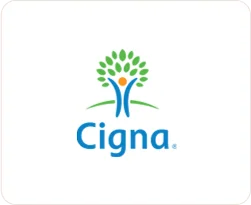Fentanyl is an extremely potent synthetic opioid—50 times stronger than heroin and 100 times stronger than morphine. Even minimal exposure can lead to rapid physical dependence, making it one of the most dangerous drugs in circulation today. Therefore, individuals who are using this drug can face the challenge of fentanyl use disorder with the passage of time.
Many individuals become addicted unintentionally, as fentanyl is often mixed into substances like heroin, cocaine, and counterfeit pills without the user’s knowledge. Its high addictive potential stems from how it binds to the brain’s opioid receptors, triggering intense feelings of euphoria.
Over time, the brain adapts, requiring higher doses just to feel normal. This leads to powerful withdrawal symptoms and compulsive drug-seeking behavior. Because of its potency and the speed at which dependence forms, professional treatment is essential for safely addressing fentanyl addiction and achieving long-term recovery.

The chemical form of Fentanyl stands as 50 times stronger than heroin and 100 times stronger than morphine. One cannot handle the extreme strength of fentanyl because the drug creates physical dependency after minimal exposure.

The extreme potency of fentanyl makes it one of the most fatal substance abuse disorders, leading to addiction. Drugs Rehab FL delivers customized treatment for fentanyl addiction, which enables people to escape drug dependence and revive their lifestyles. Our evidence-based treatment programs combine medical detoxification with behavioral therapy and extensive recovery support to achieve permanent sobriety.
A structured environment to find healing exists at our fentanyl addiction treatment center for those who need help or their family members do. Each treatment program for fentanyl addiction at our facility caters to individual patient requirements for optimal recovery success.
Get holistic recovery from drug & alcohol addiction today!
At Drugs Rehab FL, we take pride in our 97% fentanyl addiction recovery rate, a testament to the effectiveness of our individualized treatment programs. Recovery success depends on multiple factors, including adherence to treatment protocols, the level of professional and personal support, and any underlying psychological conditions. Our evidence-based approach and long-term rehab programs significantly enhance recovery outcomes.
As a leading fentanyl rehab facility, we specialize in helping individuals who are actively searching for “fentanyl rehab near me.” Our experienced team develops personalized care plans that address the unique needs of each client, ensuring the highest chance of long-term sobriety. When you choose to work with our dedicated professionals, you’re taking the first and most important step toward lasting recovery.

The power of fentanyl addiction over your life must end now. The deadly nature of fentanyl addiction does not prevent patients from recovering from its detrimental effects. You can find information about fentanyl treatment programs at Drugs Rehab FL by contacting us now to begin your journey toward a substance-free existence.
Fentanyl withdrawal can cause severe and potentially dangerous symptoms. At our facility, patients undergo 24/7 detox to ensure their safety and comfort.
We offer different therapies, such as cognitive behavioral therapy, dialectical behavior therapy, individual and group counseling, and relapse prevention techniques.
Inpatient rehab offers a residential setting for those with severe addiction, while outpatient treatment is for individuals who need to maintain daily responsibilities.
We offer treatment for both addiction and mental health issues. Patients receive support through ongoing counseling and support groups for long-term recovery.
Our fentanyl addiction treatment program allows patients to overcome this addiction so they can rebuild their healthy and meaningful lives.
Drugs Rehab FL operates with various main insurance carriers to support the financial cost of substance abuse therapy. Verify your insurance coverage today to recover from addiction with minimal financial strain.




We not only treat fentanyl addiction, but also provide well-structured, effective, and personalized treatment plans for the following types of addiction.
The success probabilities show better results when patients receive complete treatment approaches that unite MAT treatment with counseling sessions. Patients can achieve lasting recovery when they receive sustained support coupled with preventive measures to avoid relapse.
Both the fight against illegal distribution of drugs should grow stronger, while efforts must expand their treatment and harm reduction programs. Education aimed at public understanding about fentanyl risks remains essential for fighting fentanyl abuse.
When fentanyl interacts with brain opioid receptors, it causes strong feelings of pleasure alongside addiction development. Chronic drug consumption changes brain chemistry, which produces cravings along with obsessive behavior to obtain drugs.
The strongest withdrawal symptoms tend to develop within 72 hours but resolve themselves within seven days. People who go through acute withdrawal will encounter PAWS, which can continue for weeks and months after.